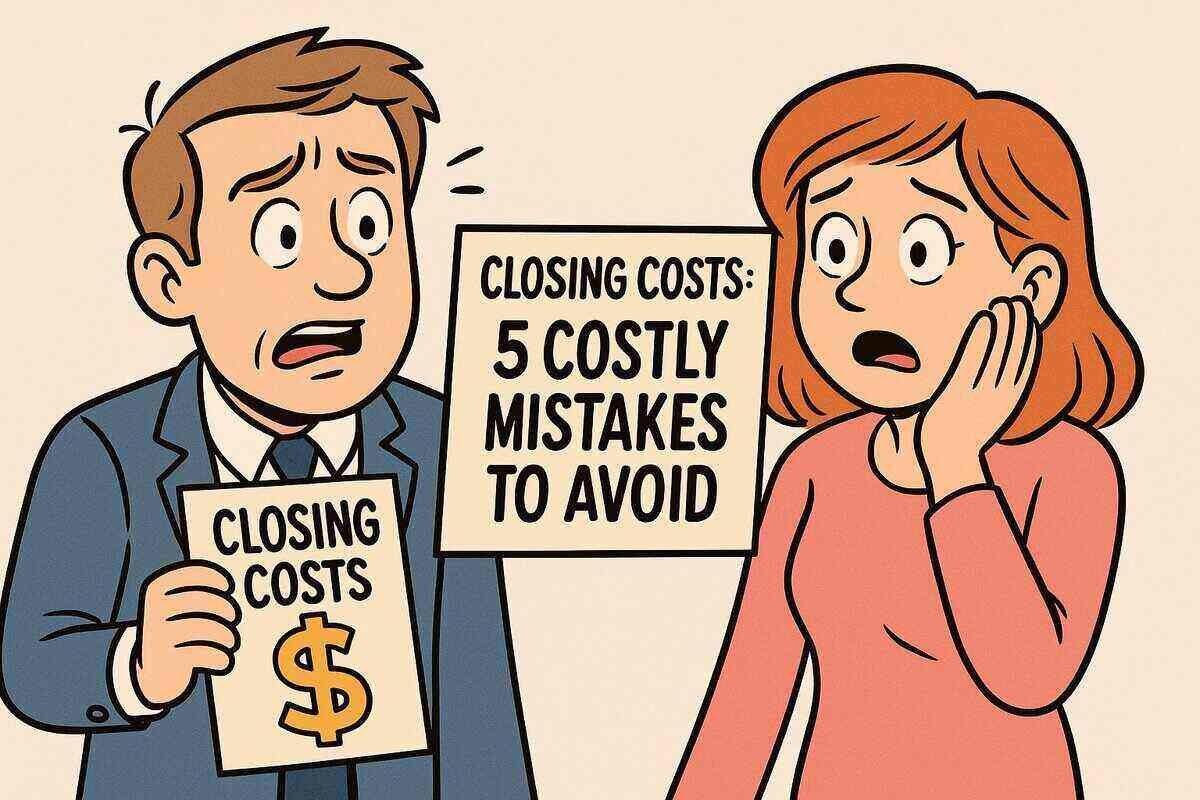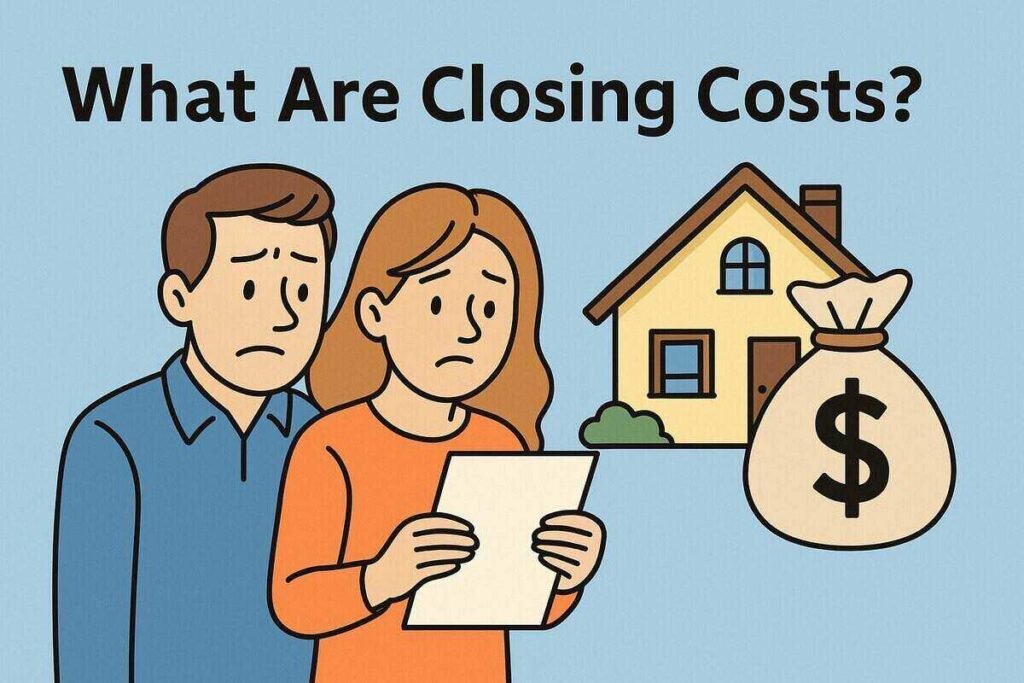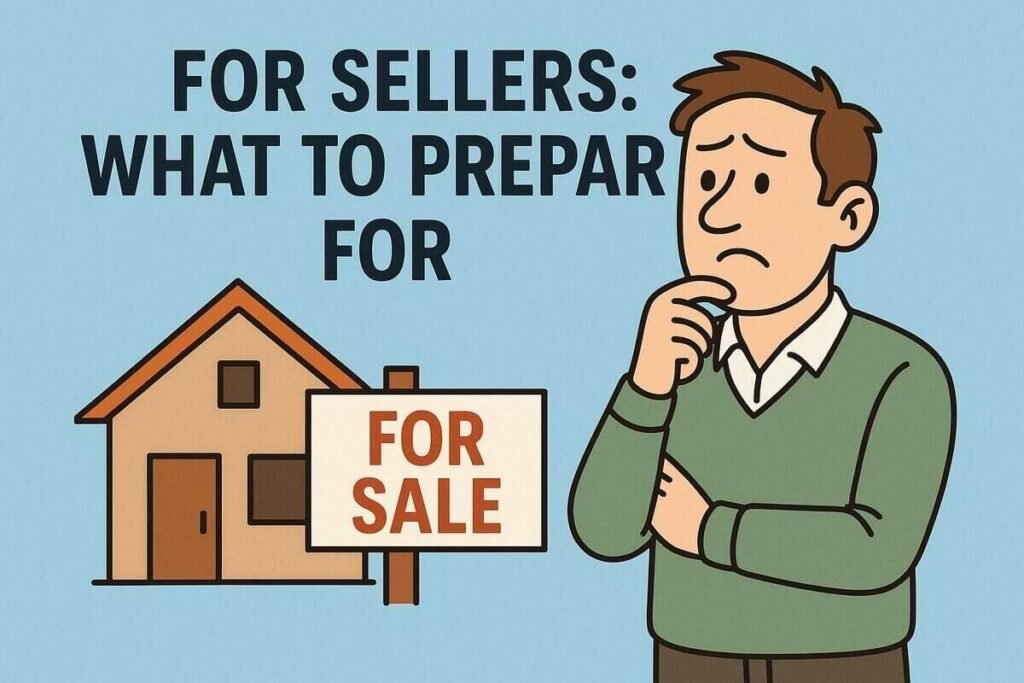Physical Address
304 North Cardinal St.
Dorchester Center, MA 02124
Physical Address
304 North Cardinal St.
Dorchester Center, MA 02124

Introduction
You finally found the perfect home or the right buyer. Emotions are high. You envision the move, the new memories to be made. But then—closing costs come into view. Suddenly, you’re hit with unexpected fees, terms you’ve never heard of, and a final bill that feels more like a surprise than a formality.
Whether you’re buying or selling a property, understanding closing costs is key to avoiding sticker shock and navigating the final steps of your real estate journey with confidence. In this guide, you’ll learn what to expect, how to prepare, and which costs can potentially be negotiated or reduced.

Closing costs are the fees and charges due at the end of a real estate transaction. They cover services provided by third parties, like lenders, appraisers, and title companies, and they typically range from 2% to 5% of the home’s purchase price.
These costs are separate from your down payment and are divided between the buyer and seller, depending on local custom and specific deal negotiations.
| Closing Cost Component | Typically Paid By | Estimated Cost Range |
|---|---|---|
| Loan Origination Fee | Buyer | 0.5% – 1% of loan amount |
| Appraisal Fee | Buyer | $300 – $500 |
| Title Insurance | Buyer (sometimes seller) | $500 – $1,000+ |
| Escrow/Settlement Fee | Split | $500 – $2,000 |
| Property Taxes (prorated) | Buyer/Seller | Varies |
| Attorney Fees (if required) | Buyer/Seller | $500 – $1,500+ |
| Homeowners Insurance | Buyer | $400 – $1,200 annually |
| Recording Fees | Buyer | $25 – $250 |
For more in-depth information, refer to Consumer Financial Protection Bureau’s Guide to Closing Costs.

As a buyer, you’ll be responsible for most of the closing costs, particularly those related to financing the home.
Key costs for buyers include:
Investopedia’s guide to buyer closing costs can help you plan accurately.

While buyers carry the bulk of the burden, sellers are not off the hook. Your responsibilities will typically include:
You might also agree to cover buyer’s closing costs to sweeten the deal, especially in a buyer’s market.
While regional practices differ, here’s a general idea:
Buyers Typically Pay:
Sellers Typically Pay:
National Association of Realtors provides region-specific insights and tips for managing buyer/seller costs.
How much should I budget for closing costs?
Plan for 2% to 5% of the home’s purchase price. On a $400,000 home, that’s $8,000 to $20,000.
Can closing costs be rolled into the mortgage?
In some cases, yes. Lenders may allow you to roll costs into the loan, but you’ll pay interest on them.
Are closing costs tax-deductible?
Some costs may be deductible, such as mortgage interest or property taxes. Consult a tax advisor or refer to IRS guidelines.
Can I negotiate closing costs?
Absolutely. Some fees are flexible, and you can request seller concessions to cover costs.
Understanding closing costs is crucial whether you’re stepping into homeownership or cashing out as a seller. These fees represent more than fine print—they’re a significant financial consideration that impacts your bottom line.
With preparation, transparency, and a little negotiation, you can approach your closing date with clarity and confidence. Now that you understand closing costs, you’re one step closer to sealing the deal smoothly.